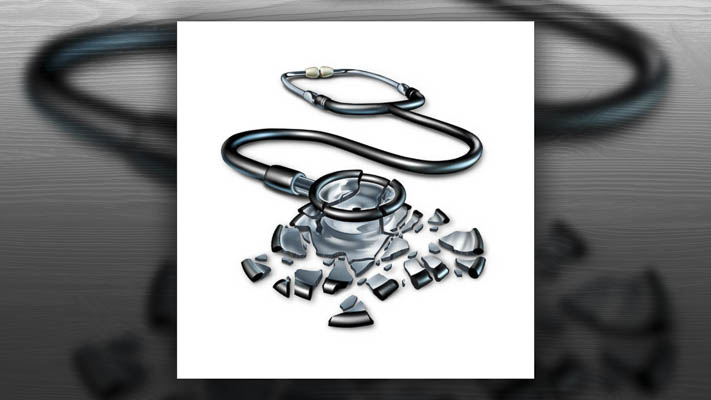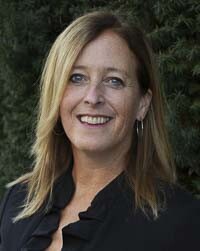
Elizabeth New (Hovde) believes the more commission members look at problems in the current system and troubles with taxpayer-financed systems elsewhere the better
Elizabeth New (Hovde)
Washington Policy Center
Health care is expensive. Universal health care — more appropriately called taxpayer-financed health care — isn’t going to change that. It will still be expensive, and government, not doctors and patients or even insurers, will be in charge of what kind of health care is sought and paid for in such a system.

In a taxpayer-financed, government-controlled system, demand will always outstrip supply, and rationing will be required. This is the pattern of “universal” health care in other countries. Not everyone gets the care they want or need from their county’s health care system, and access and quality suffer. Taxpayers do see larger tax bills.
People showing up to Universal Health Care Commission (UHCC) meetings demanding the commission make a taxpayer-financed system in Washington state become reality today, not tomorrow, don’t seem to bother with “universal” shortcomings and failures, a graying population or individual choices that make Americans unhealthy. The public comment time in the UHCC’s June 4 meeting was no different.
Perspectives that came from a panel presenting at the meeting, however, did offer something out of the UHCC norm. I hope commenters stuck around to hear about some of the government stress points in the current system.
The panel discussed the need for administrative simplification efforts, with providers saying administrative burden is unsustainable and causing burnout among doctors. A Washington State Medical Association representative showed a slide of state and federal agencies giving health care mandates. In Washington state, that included the Washington state Legislature, the Department of Health, the Health Care Authority, Labor and Industries and the Office of the Insurance Commissioner. Federally, that included Congress, the Center of Medicare and Medicaid Services, the Office of Inspector General, the Office for Civil Rights and the Drug Enforcement Administration. Panelists mentioned the trouble with a shifting regulatory environment and having to adhere to thousands of policies every year that impact health care.
Health care mandates increase system costs, and not everyone needs all the things the mandates require. This often makes one-size-fits-badly insurance plans that cost too much.
Lawmakers need to reduce mandates and enact patient-centered reforms rather than have pie-in-the-sky expectations that a taxpayer-financed system provides a yellow-brick road to the doctor’s office.
Another area in need of lawmaker attention is keeping Medicaid a safety net for people in true need and paying providers adequately for the services they provide people on government health plans. This would help with sticker shock when a medical bill arrives for people with private insurance.
More competition, price transparency and innovation, along with more informed patients who have a financial stake in the game, have a far better shot at cost-containment than a taxpayer-financed health care system. Yet that is the path state lawmakers have put us on.
The Universal Health Care Commission was created in 2021 by Senate Bill 5339 to help establish a universal health care system for all Washingtonians. So far, it has shown great commitment to a taxpayer-financed, government-run system and is letting itself be guided by the playbook from Whole Washington, a group that strives to bring voters an initiative for “universal” health care and helps lawmakers write bills. But reactions from commissioners to the June 4 panel gave me hope.
One commissioner remarked that, “People are dying from bureaucracy.” Another wanted to better understand how a universal, taxpayer-financed system would provide an answer to problems discussed.
The next commission meeting is Aug. 8 from 2 p.m.-5 p.m. Expect more proponents of taxpayer-financed health care chastising the very group trying to make “universal” health care a reality. Hope that the UHCC does not feel pressured and continues due diligence.
The more commission members look at problems in the current system and troubles with taxpayer-financed systems elsewhere the better.
Elizabeth New (Hovde) is a policy analyst and the director of the Centers for Health Care and Worker Rights at the Washington Policy Center. She is a Clark County resident.
Also read:
- Opinion: Schools notifying parents about the kinds of care kids can decide on their own didn’t make itElizabeth New criticizes the removal of Amendment 1164 from current legislation, arguing it leaves parents uninformed about health care services accessed by their children through schools.
- Opinion: Off-road vehicles in the neighborhoodDoug Dahl responds to a resident’s concern about off-road vehicles on neighborhood streets, outlining the legal violations and safety risks involved.
- POLL: Is America more united or more divided than it was a decade ago?Clark County Today’s weekly poll asks: Is America more united or more divided today? The question comes after Stephen Davis brought a powerful message to Vancouver.
- Opinion: Revolution or revival?Nancy Churchill argues that Washington state is ground zero for a Marxist-style revolution but says a cultural revival is possible through personal responsibility and the America First movement.
- Letter: ‘It’s said sarcasm is the lowest form of wit’Amboy resident Thomas Schenk criticizes Olympia’s use of “emergency clauses” and other legislative tactics that limit public participation.










